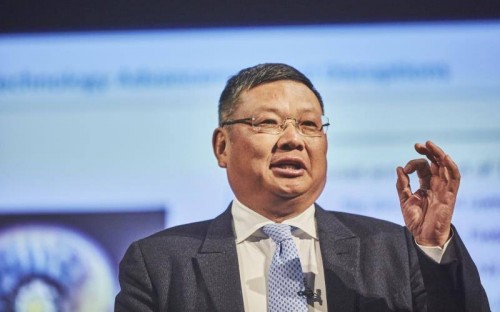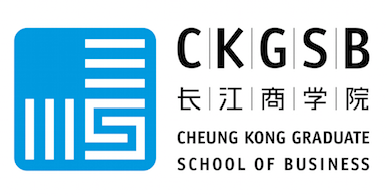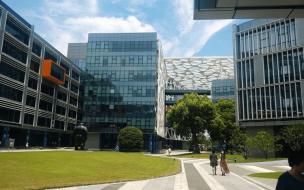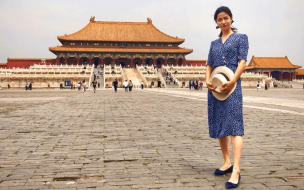The school is launching a host of new MBA electives—covering trending topics like artificial intelligence (AI), fintech, bitcoin, and blockchain—to appeal to the business leaders of the future.
Consequently, applications for the English-language MBA are already up. Registrations—applicants declaring an interest in the 14-month, global MBA program—are in their thousands, both from domestic and international applicants.
“We’ve revamped our MBA curriculum to meet the demands of students and industry,” says Professor Ou-Yang Hui, distinguished chair professor of finance and associate dean of the CKGSB MBA, who alongside the program’s new director, Alan Chen, is leading the innovation.
One example, Hui explains, is a renewed emphasis on fintech, blockchain in particular. A new blockhain-focused elective will see MBA students visit big companies like Bank of China and learn from a combination of b-school professors, engineering professors, and real-life practitioners, to understand how blockchain is actually used in the financial sector.
“Business interest in blockchain is huge,” says Hui. “Employers don’t just want students to have a basic understanding of what blockchain is; they want students who understand the technology itself.
“Our school has a unique value proposition compared to other schools in China because our professors are leading figures in their industries” he continues. “We’re uniquely positioned to bridge academics and industry.”
CKGSB’s former professors include Jon Liao, JD Group’s chief strategy officer; Zeng Ming, Alibaba Group’s chief strategy officer; and Chen Long, chief strategy officer of Alibaba's new financial services unit Ant Financial. Alibaba founder Jack Ma is also a CKGSB alum.
Hui himself served as a managing director at UBS, Lehman, and Nomura before joining Cheung Kong Graduate School of Business.
Alongside the fintech classes, marketing professor Sun Baohong—who’s worked on consulting projects for big-name firms like Bosch and IBM—has designed a new six-week MBA elective, Machine Learning and AI for Business Applications, tapping into the rise of big data and analytics-driven decision making.
The module will cover data management, machine learning, artificial intelligence, and how the application of such technologies helps resolve real problems in business today. A number of new technologies like artificial intelligence and virtual reality, Alan Chen explains, will be used in the class.
“Employers are looking for students with the ability to manipulate large data sets, using statistic models and cognitive methods. They’re requiring these fundamental skills more and more from MBA students,” says Alan.
CKGSB has partnered with a host of engineering schools—its most recent partners include Columbia University’s Fu Foundation School of Engineering, UC Berkeley College of Engineering, and Technion Israel Institute of Technology—with these requirements in mind.
The school’s wider ambition is to lead the future of MBA programs in China and expand its global presence, while tapping into the latest tech trends. The CKGSB MBA curriculum, and the very format of the program itself, is part of that.
“Students in the MBA market are becoming more demanding and selective with the product type offered by business schools,” Alan explains. “Generation Z demand a faster turnaround; they want to do things more quickly. As a result, there’s a trend towards shorter MBA programs, like ours, in both the US and China.
“There’s also a trend towards students going on to start or work for startups,” he continues. “We’re weaving in a lot more of these entrepreneurship-type courses. Nowadays in China, every student wants to be their own boss!”
The CKGSB MBA has its own startup success stories. Cindy Mi, CKGSB’s most successful MBA entrepreneur to date, raised $200 million at a $1.5 billion valuation in August last year for her company VIPKID, an English-tutoring, edtech company which matches Chinese students online with North American tutors.
International MBA grads—like Italian former ice hockey pro Mauro Emanuele Buongiovanni, who joined KPMG after graduation, and Boris Nikolic, who started his own cleantech company—have also benefited from the school’s innovation-driven approach.
“If you’re an international student looking to do an MBA in China,” Hui concludes, “Cheung Kong Graduate School of Business is by far the best place to do so.”
RECAPTHA :
ce
f8
ea
34










